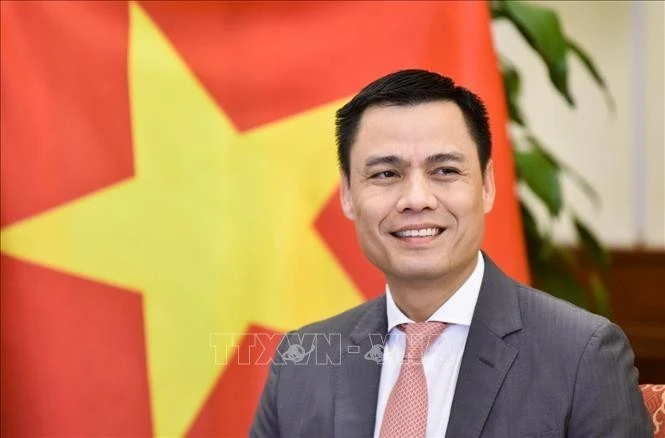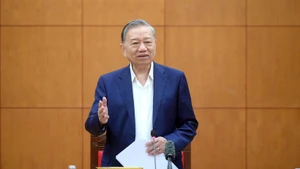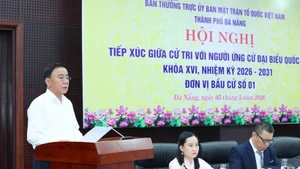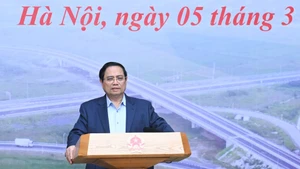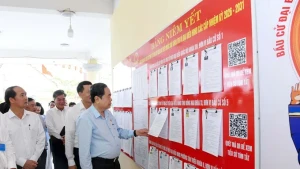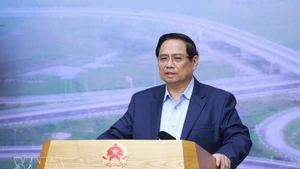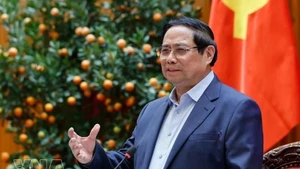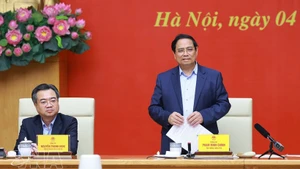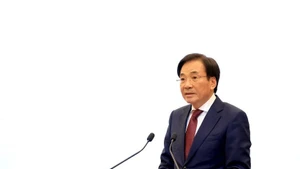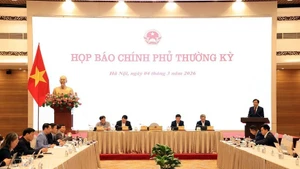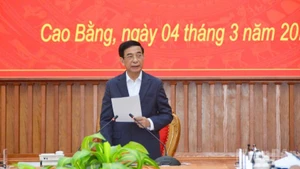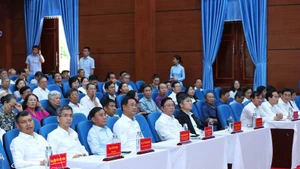Giang told the press that the campaign began immediately after the convention’s adoption in late 2024. Viet Nam mobilised diplomatic efforts across multiple levels and capitals, especially in countries with leading roles in digital technology, to build consensus for its candidacy.
Hosting the signing ceremony, he underscored, allows Viet Nam to reaffirm its position as a reliable partner committed to advancing multilateralism. The government intends to ensure the event meets the UN standards and draws broad participation from member states, international organisations, civil society, and technology corporations.
Viet Nam will be among the first signatories, with expectations that at least 40 countries will join the Ha Noi ceremony, demonstrating strong political will for the convention’s early ratification and implementation, targeted for 2027 under the UN Office on Drugs and Crime (UNODC)’s timeline.
Giang noted that the event will also include a forum on how countries can adapt their domestic legal frameworks and promote collaboration among competent agencies, technology firms, and cybersecurity experts to build a safe digital environment.
He expressed his confidence that with the expertise and experience demonstrated in numerous international processes, Viet Nam could fully meet the international community’s expectations in promoting multilateral and global cooperation to address major UN and world issues, including cybercrime.
Viet Nam, he stressed, has seen peace and stability as essential to its path toward prosperity, echoing Party General Secretary To Lam’s guiding principle of maintaining harmony at home and abroad. The country has supported the UN’s initiative to develop an international legal framework against cybercrime, the first comprehensive document of its kind, since it was launched in 2019 amidst the growing threat of cybercrime.
According to Giang, between 2022 and 2024, an inter-agency Vietnamese delegation, led by the Ministry of Public Security and the Ministry of Foreign Affairs, actively participated in all eight rounds of negotiations. On December 24, 2024, the UN General Assembly formally adopted the paper, with Viet Nam contributing to incorporating several basic principles such as respect for sovereignty, non-interference, and compliance with international law. The country also helped coordinate negotiations on several critical provisions, gaining recognition from the international community for its constructive contributions.
The diplomat said the convention opens major opportunities for Viet Nam, elaborating that by taking a pioneering role in shaping global cooperation on cybercrime prevention and control, Viet Nam gains access to international resources, expertise, and technology that can assure an environment of safety, security, and peace for national development. Additionally, it also provides a platform to deepen cooperation beyond cybercrime combat as well as promote the nation’s culture, peace, and hospitality to the world.
However, Giang pointed out formidable challenges that the international community must overcome. Adoption of the convention is just the beginning, he said, stating its effectiveness depends on determination from States.
As for Viet Nam, the country must continue refining its legal system and building institutional capacity to meet global obligations. Giang also emphasised that people remain the decisive factor. Officials and citizens alike need to improve their knowledge and capacity to engage internationally in the fight against cybercrime.
